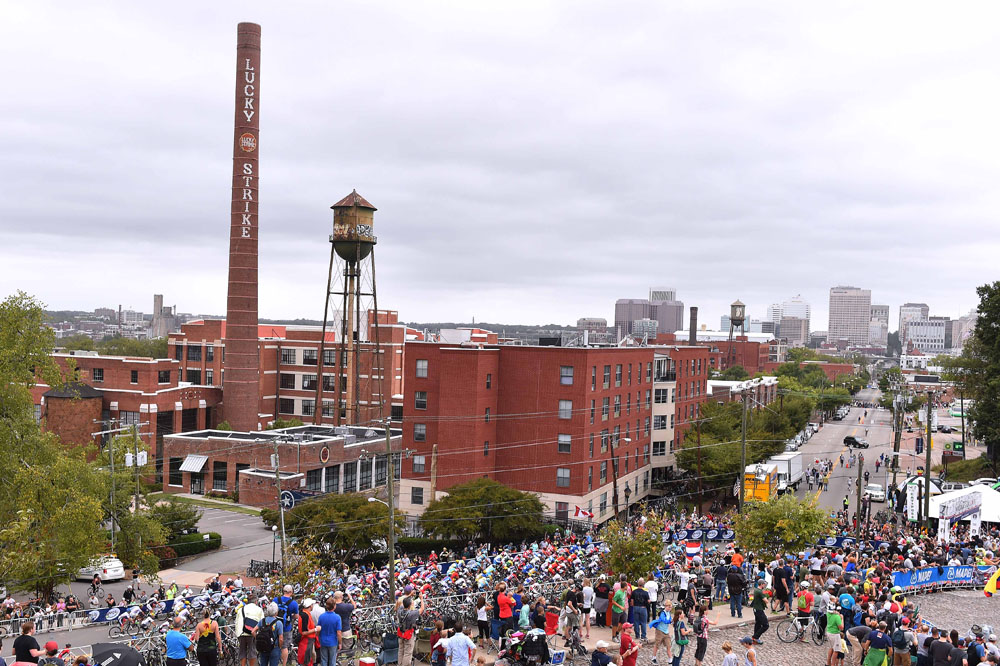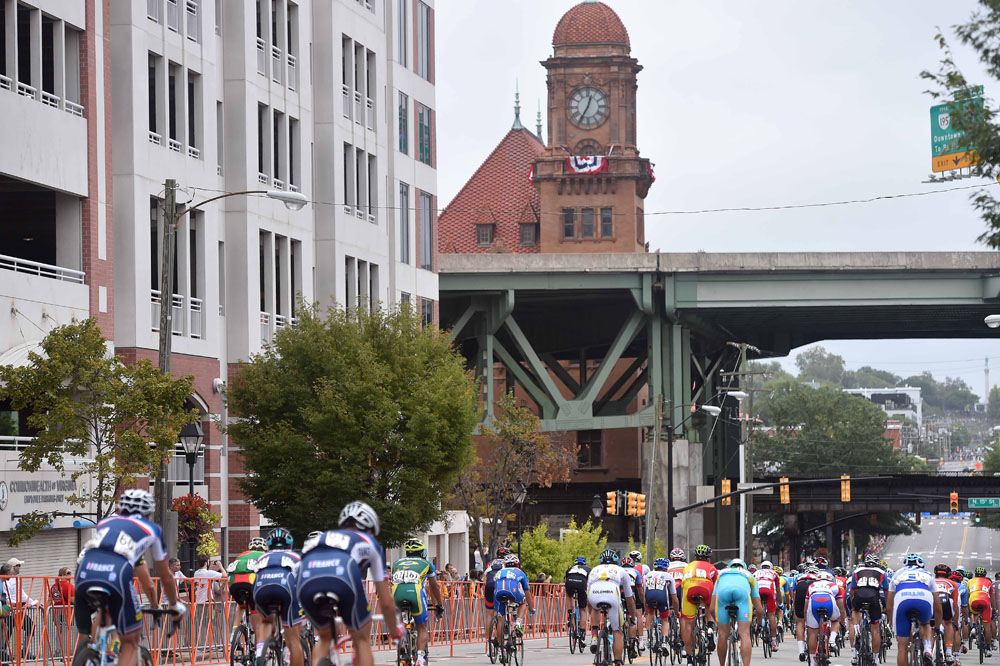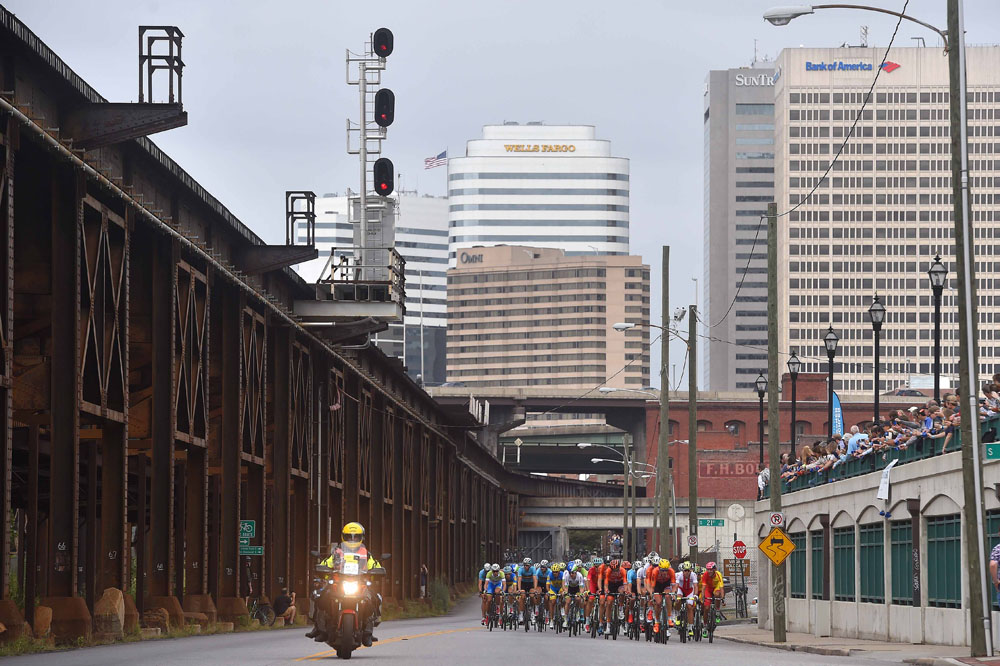World championships cost Richmond $4.1 million
Financial report details costs for host city





The city of Richmond, Virginia reports that hosting the UCI Road World Championships cost it $4.1 million from the first bid through the final race.
The city hosted seven days of racing in addition to three more days where courses were closed for training, in addition to pre-race reconaissance rides and other events related to its bid for the event, all culminating in the crowning of 10 individual champions and two team time trial world titles.
Richmond allocated $2 million to the project over a three-year period, to "support operating, licensing, and other expenses exclusive to the 2015 Worlds" in addition to funds for travel to the 2011, 2013 and 2014 world championships, the 2012 and 2013 USA Pro Challenge, and the 2013 Tour of California.
Preparation of the course cost $36,710, to remove markings, signals and other signs from the finishing straight. Promotions and merchandising cost $20,686.
The biggest cost for the city was police and emergency personnel, which went nearly $200,000 over budget for a total of $1,757,096.
Separate from the tally was almost $6 million spent to improve the race route, from repairing the cobbles on 23rd street, resurfacing roads and making improvements to sidewalks and making them accessible for the disabled.
The city noted that there were other improvements along the route that were done separately from the event, including replacing traffic signals, adding bike lanes, putting in a gateway sign on I-95, and other public safety improvements.
Get The Leadout Newsletter
The latest race content, interviews, features, reviews and expert buying guides, direct to your inbox!
Of an interesting note, the city paid $10,619 for "Police Communications Equipment and Riot Gear", the latter of which was fortunately not used during the race.
Mayor Dwight C. Jones said the money that went into the race itself "will also have a lasting, positive impact for the citizens of Richmond. Hosting this event led to unprecedented levels of regional planning and cooperation, introduced the city to new technologies and best practices in many service areas, and established protocols and templates for coordinated infrastructure programming, event operations, public safety and emergency preparedness, environmental sustainability, any myriad other activities."